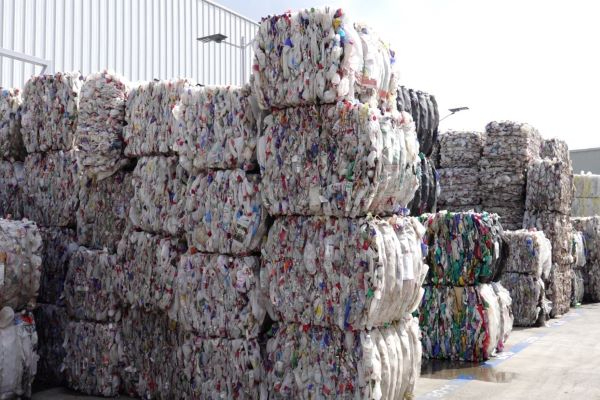The government, private sector, and citizens must prioritize recycling, enhance plastics circularity, and foster public–private partnerships to balance necessity with environmental responsibility

India annually generates 10 million to 12 million metric tons of plastic waste, much of which remains unrecovered or mismanaged. Plastics are essential to modern life, offering unparalleled versatility and affordability across sectors. Their cost efficiency and exceptional strength-to-weight ratio make them indispensable in a wide variety of end applications from packaging to automotive and aerospace. However, the unchecked proliferation of plastic waste presents severe environmental, economic, and societal challenges.
Plastics represent a wide variety of materials and end applications. It is critical to prioritize efforts toward the right substrates and applications to realize the maximum impact and build momentum. For example, HDPE-based packaging and PET must be prioritized given their widespread use, short useful life, and well-established recycling infrastructure and technology. Similarly, PVC and PS can be taken at a later point given their longer life cycles, relatively less mature recycling technologies, and/or smaller volumes compared with other substrates.
Please download the complete whitepaper on Plastic Waste prepared by Kearney by clicking on the below link (https://www.kearney.in/insights/solving-plastic-waste-roadmap-for-a-sustainable-future).
Each step of the plastics value chain requires close examination to identify issues and drive potential solutions: Upstream activities; Midstream activities; Downstream activities; and Government regulations.
Upstream activities (plastic production, conversion and consumer use): “Design for recycling” is key to enable recycling. Examples include switching to mono-material designs and reducing non-recyclable parts such as metallization, colored labels, and adhesives. Developing these solutions requires collaboration across value chain partners (plastic producers, machine manufacturers, converters, and brand owners) and significant innovations in product design and material properties.
Alternate materials such as biodegradable plastics and bioplastics offer another potential solution. However, challenges associated with product costs, functional limitations, and feedstock sustainability issues are likely to limit their scale and adoption over the next decade or so.
Midstream activities (collection and sorting of plastics waste): Waste segregation is a major obstacle in unlocking the true potential of recycling in tackling plastic waste. In India, waste is rarely separated into compost, recyclable, and toxic waste, which impedes recycling efforts. Raising awareness through tailored campaigns and community groups can encourage household-level waste separation. Success stories such as Chai pe Charcha in Rishikesh, highlight the impact of grassroots initiatives.
Incentivizing local communities to create a vibrant waste-collection economy can help fill the gaps created by inefficiencies or the absence of municipalities and elevate the living standards of the informal sector involved in waste recovery.
Investments in Material Recovery Facilities (MRFs) need to be incentivized by enhancing the quality and quantity of feedstock, leveraging viable supply chain design and technology to avoid pilferage of high-quality plastic waste to enhance yields of MRFs. Further, derisking the return on investments in MRFs via contracting mechanisms, enforcement of Extended Producer Responsibility (EPR) etc. can go a long way.
Downstream activities (recycling of sorted waste and use of recyclates): Large-scale deployment of mechanical recycling, the most mature recycling pathway, requires financial support and policy interventions to establish demand offtake and ensure project viability. In addition, the supply chain will be critical to ensure high-quality feedstock for optimal utilization. Further, development of chemical recycling technologies is crucial to alleviating the shortcomings of mechanical recycling. The focus needs to be on promoting R&D to develop this pathway. Finally, to inspire confidence and encourage the use of recycled plastics in sensitive industries, end-to-end traceability of plastics needs to be promoted.
Government regulations: The Plastic Waste Management Rules aim to regulate the country’s plastic waste and have undergone multiple amendments to address gaps and adapt to evolving needs. Persistent challenges include inadequate policies, weak enforcement, and insufficient industry support. More needs to be done in areas such as stricter enforcement through local authorities, subsidies and investments toward eco-friendly materials, investment in expansion and advancement of recycling technologies, comprehensive data management and data-driven decision making, and catalyzing enhanced industry collaboration.
Stakeholders must collaborate extensively to tackle plastic waste effectively. Governments should run broad public awareness campaigns, empower the informal waste sector, and incentivize traceability technologies. Local municipalities should gradually enforce recycled content quotas and advocate for advanced recycling. Industries should design products for recyclability, reduce plastic use, expand refillable options, and forge strong partnerships for waste management. Investments in upcycling and sorting technologies, along with digitizing feedstock management, are crucial. These efforts can significantly enhance the recycling rates and promote a sustainable circular economy.
In this context, Kearney argues for a comprehensive initiative to address the challenges of plastics. The government, private sector, and citizens must prioritize recycling, enhance plastics circularity, and foster public–private partnerships to balance necessity with environmental responsibility.
Subscribe to our newsletter & stay updated.